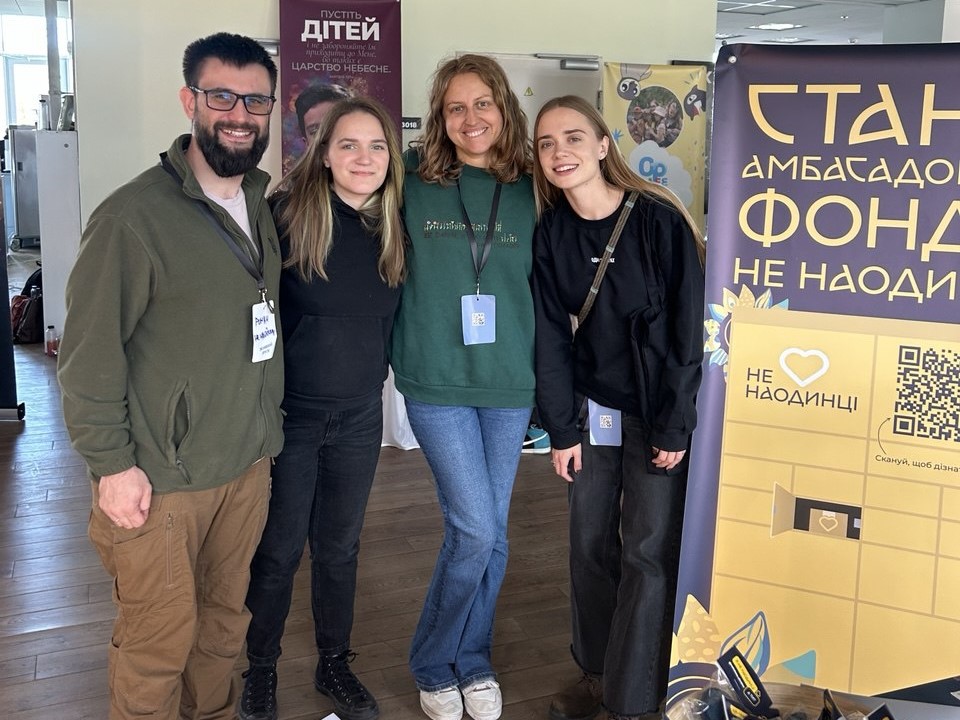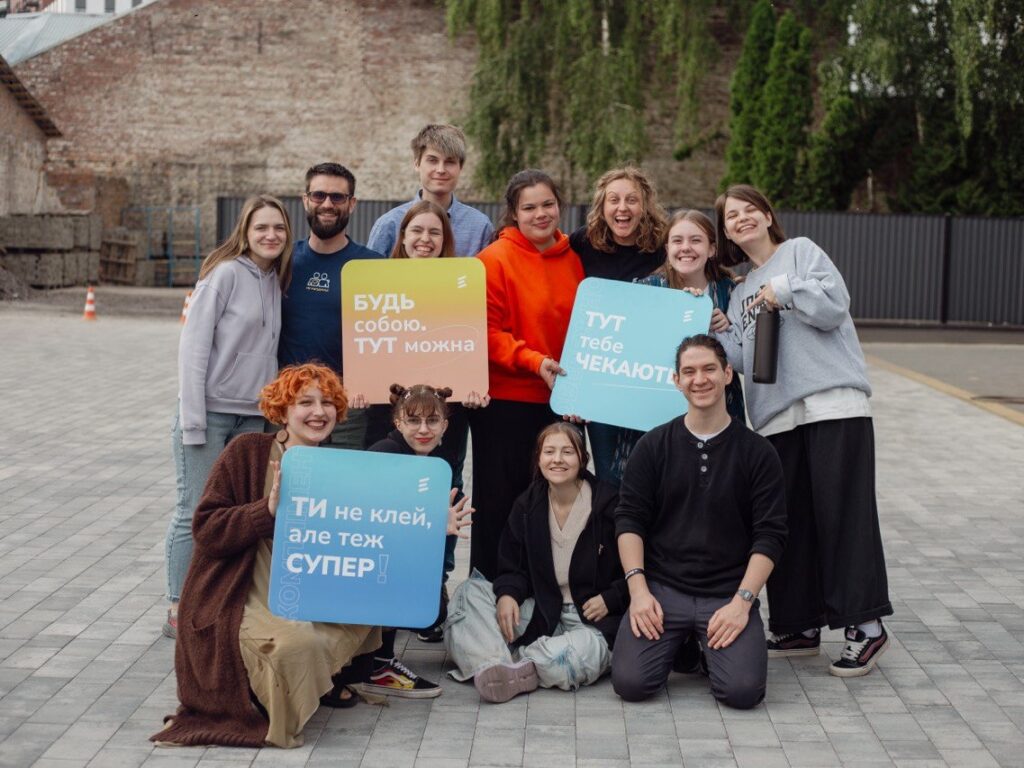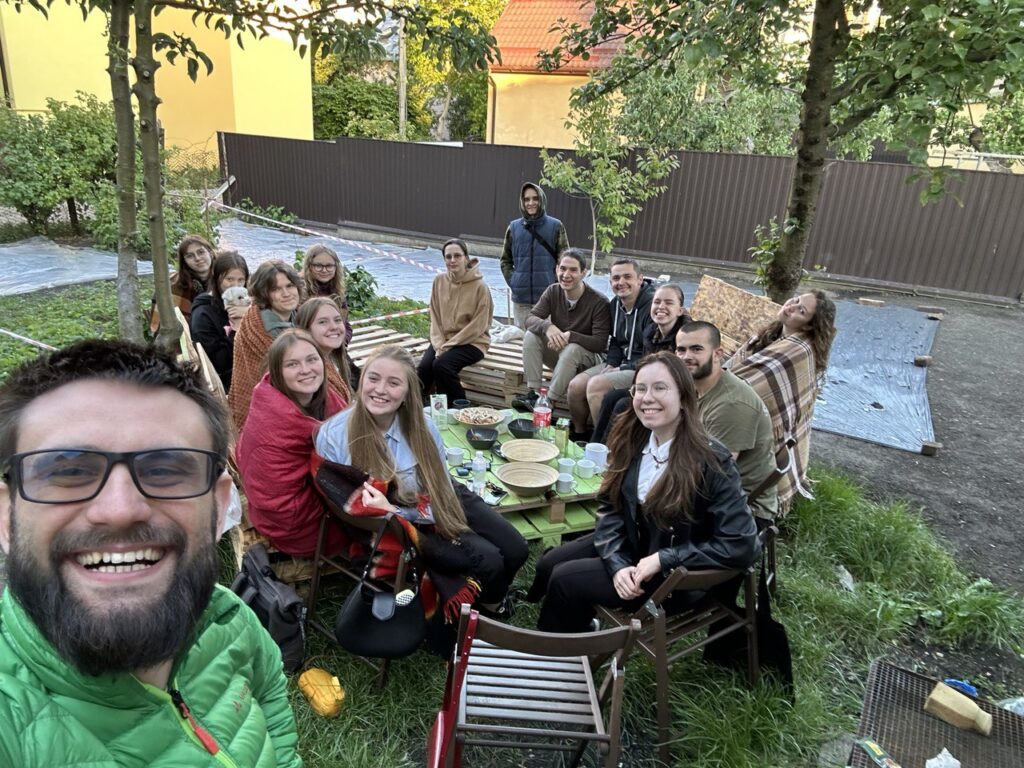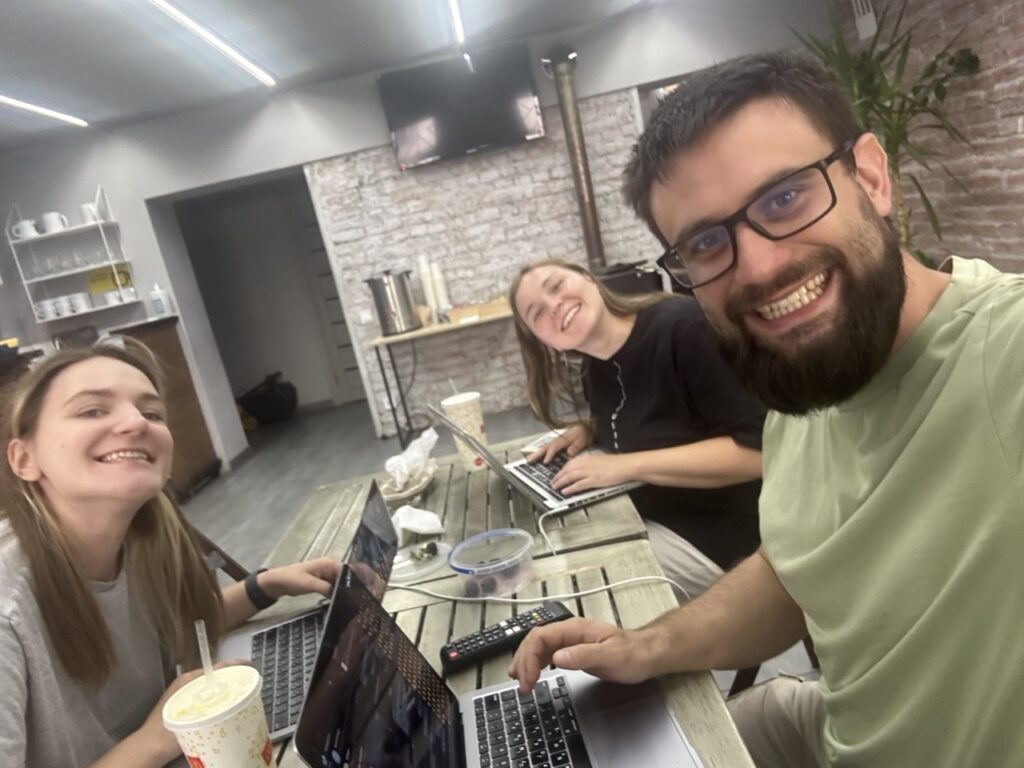





Can you please share more about yourself? What is the name of the church where you serve, and what are the main areas of your church’s ministry focus?
My name is Roman Babinets. I am 30 years old. Currently, I am pursuing my master’s degree in Transforming Leadership. I first encountered Christianity in 2012 at an English language camp. Since then, I have been on a journey of growing closer to God.
I am serving in the Church of Christ Fellowship as an Assistant Pastor. Our church is small, we have about 80 members, but we are deeply committed to serving our community. Our ministries focus on young people, low-income families, and the military. We also have a comprehensive evangelistic outreach and have established a charity fund called ‘Not Alone’ as part of our church’s mission. The foundation supports the military by providing medicines and tactical medical supplies.
Our primary focus is youth ministry, including camps and various projects. One example is the ‘Fusion’ project, an evangelistic initiative where we host weekly music rehearsals for young people aged 14 to 20. The goal is to prepare for a concert, and during each rehearsal, we dedicate 15 minutes to a devotional, sharing the message of Christ with the participants.
Please describe the specific ministry you are involved in. What led you to choose this particular area of service? Is there any specific story or moment that marked the beginning of your ministry journey?
I have numerous responsibilities within the church, including organizing various youth projects—such as a river rafting trip, which, interestingly, played a key role in deepening my understanding of Christianity. I provide comprehensive support to church leaders, serve in youth ministry, and hold the roles of assistant pastor, executive pastor, and ministry coordinator.
It might actually be easier to name the areas of ministry I’m not involved in! In addition, I lead our charitable foundation ‘Not Alone’ (https://notaloneukraine.com) as its Executive Director.
How has your ministry adapted during the war? Has the war influenced the nature or focus of your ministry? What challenges or opportunities have you faced, and what significant lessons have you learned during this time?
When the war began, we transformed our church into a temporary shelter, hosting around 800 refugees who passed through, staying for two or more. We helped them move abroad or connect with partner churches, who were able to provide temporary housing. Many friends sent humanitarian aid through our church to Ukraine.
We are truly grateful that we could transform our church into a place where people could find comfort—a space to cry, take a shower, and gather strength to move forward.
Later, as our humanitarian ministry began to grow, we started renting warehouses to better manage and distribute aid, which we received from friends abroad. We’ve always responded to people’s needs, regardless of whether people are Christians, but we consistently shared the message of Christ. This inspired us to establish a charity fund with a primary focus on providing medicines and tactical medical supplies for the military.
Our vision is to make this ministry permanent, driven by the belief that when darkness surrounds us, Christians should be the light that shines through. In addition to our aid efforts, we weaved camouflage nets for the military, partnered with other churches to sew stretchers for evacuating the wounded, and helped with raising funds for the materials.
What are your goals for your ministry? What changes or improvements are you striving to achieve? What impact and results do you hope to see through your ministry efforts?
My goal is for the church to remain strong and active, even after pastors retire. I want our ministry leaders to grow into mature, independent servants of Christ capable of leading their areas with confidence.
I dream for church to be a place where young people are always present and engaged in its ministry. I dream a church continually reaches out to the world with courage and authenticity, not closing itself off or fearing it. My hope is that the church becomes a vibrant source of hope and connection, inspiring people to live their faith fully and bring the light of Christ to others. This vision is what motivates me to get up every morning: to see the church thriving, reaching the world, and drawing in young hearts.
What inspired you to study at Ukrainian Evangelical Theological Seminary? How did you choose this particular program, and how does it align with your ministry vision?
There were two key factors that influenced my decision. First, my friend was studying for a bachelor’s degree and found it incredibly beneficial. He shared that the seminary helped clarify his understanding of theology. However, I couldn’t commit to long-term studies. But also, I was often listening to one of the seminary’s professors, Fedir Rachynets, preaching online about vocation, and his teachings deeply resonated with me. Then late I accidently saw a promo for the Transformative Leadership 2-year program, I reviewed the list of subjects and was immediately drawn to it — it felt like the perfect fit.
How has your seminary education influenced your approach to leadership and team building? Have the relationships within your team changed, and has your role in the team shifted in any way?
I am a relatively new student at UETS, but many of the courses have already had a profound impact on my life. For example, the Conflictology course completely changed my perspective on conflict. I used to avoid conflicts at all costs, but now I view conflict in a healthier, more constructive way and approach communication with people differently. Using this knowledge, I plan to conduct training sessions for young people and small groups in our church in the future.
Although I have a background in marketing and thought I already had a solid understanding of finances, the seminary has given me fresh insights into financial management. I’ve developed a new approach to planning finances for both my family and the church. I’ve come to realize that if you don’t manage finances effectively, it’s difficult to manage anything else. As a church, we now create detailed budgets for each ministry, ensuring everything is as transparent and automated as possible. Church members can access financial reports at any time, fostering trust and accountability.
One crucial reminder I’ve taken to heart is that the church should actively engage with the world and not isolate itself. This idea inspired us to install a post office service machine – Nova Poshta post box on the church grounds—a simple step to encourage people to visit, connect with the church, and build relationships.
The holistic approach to studying the Old Testament has also been transformative for me. I’ve never understood it as deeply as I do now—it feels like an entirely new world has opened up for me to explore and learn from.
I approach all my homework assignments with purpose, not just to complete them but because they are real projects that I can apply directly to my life and ministry.





